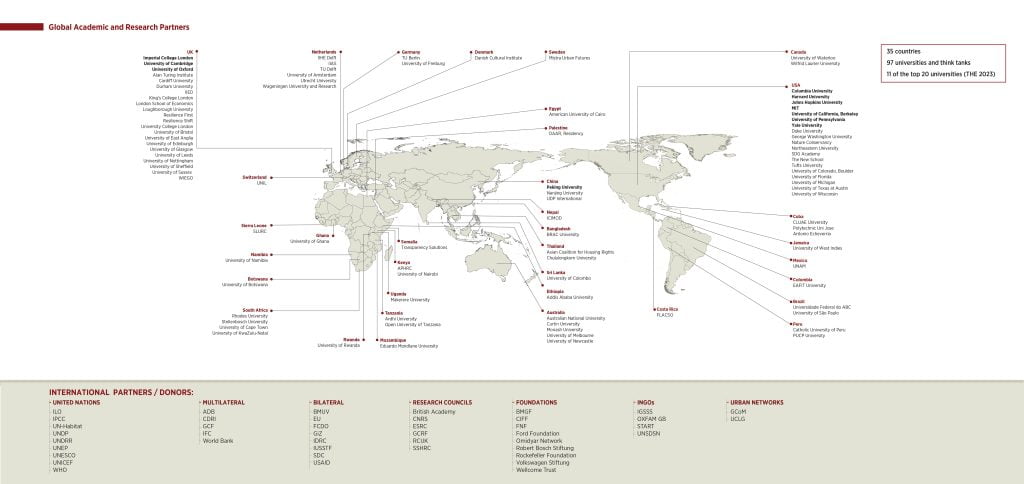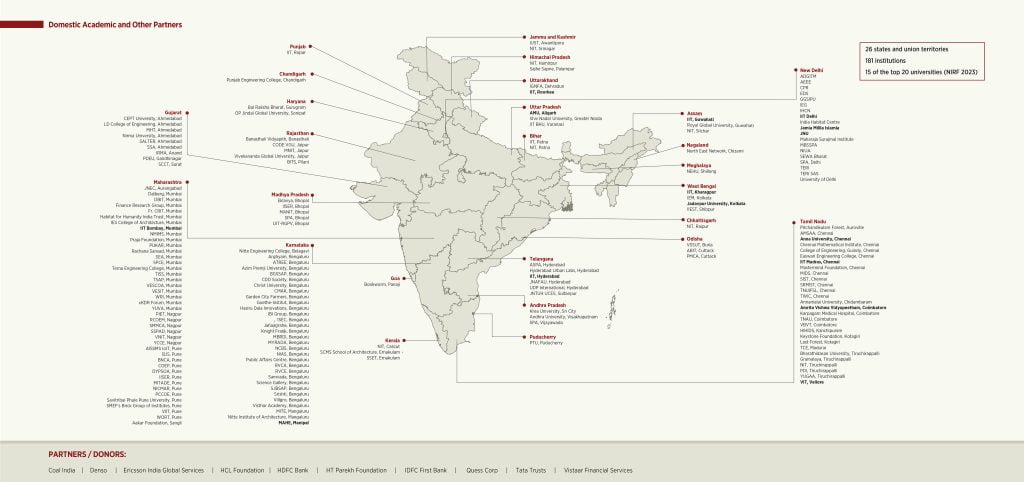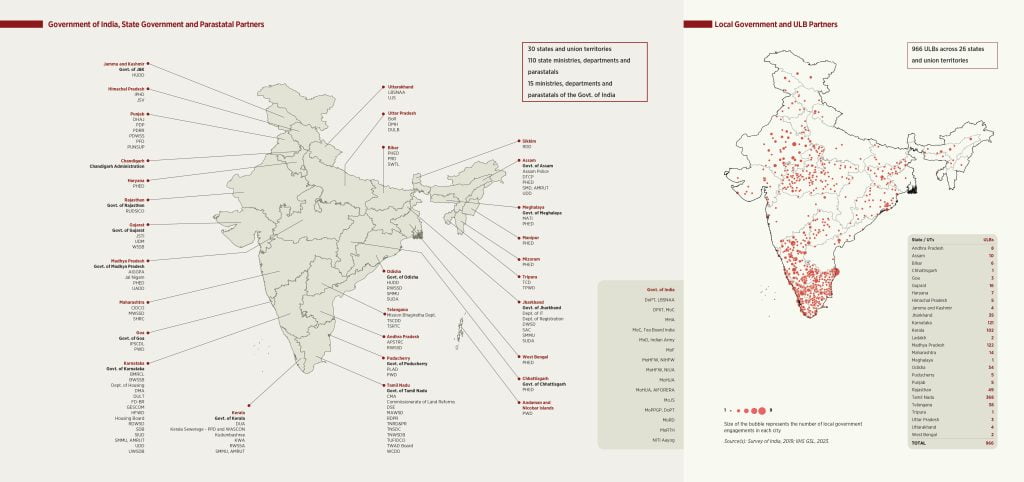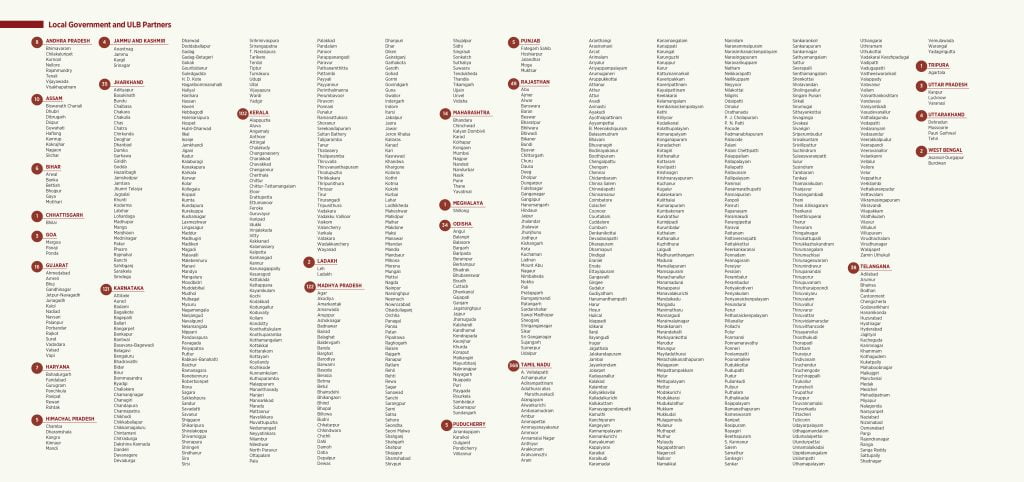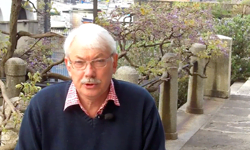In an increasingly inter-connected world, networks today are, more than ever, a key part of IIHS’ commitment to being an inter-disciplinary teaching, research and practice institution. There are three kinds of networks that are critical to our mission:
⦁ Networks of knowledge, with international and domestic universities and research institutions
⦁ Networks of practice, with governments and private actors
⦁ Networks of people, with citizens and prospective learners
Networks of Knowledge
IIHS has established long-term collaborations for teaching and research through partnerships with leading global universities, including Oxford University, Cambridge University, Harvard University, Yale University, University of California (Berkeley), Columbia University, Massachusetts Institute of Technology (MIT)., University College London (UCL), University of Cape Town (UCT), as well as global multilateral institutions such as the World Bank and several UN agencies. The programme also has partnerships with several leading Indian academic institutions including the Tata Institute of Social Sciences (TISS), CEPT University, Centre for Policy Research and public research institutes like the Indian Institute of Tropical Meteorology (IITM), and the Tamil Nadu Agricultural University (TNAU).
The full list is visualised in the map of our domestic and international partners.
View our collaborative research projects and the unique curriculum development network that IIHS convened to shape proposed new degrees in urban practice.
Networks of Practice
Two main kinds of networks of practice exist at IIHS. The first is with governments and public agencies mainly through the Urban Practitioners’ Programme, and the other with a range of private and civil society actors that are partners, funders and clients in projects in the IIHS Practice programme.
Networks of people
The third key type of network critical to IIHS is the kind that is the most pervasive, diverse and expansive—networks of people. There are four important groups: citizens across diverse geographies; learners and scholars; individual change-makers and entrepreneurs; and IIHS alumni.
IIHS builds both virtual and city-based communities of people who are engaged, or wish to engage, with a range of urban issues. These are vital to knowledge dissemination, deepening public discourse, as well as enabling citizen action.
Sign up for our newsletters, follow us on Facebook and Twitter, watch videos on the IIHS YouTube channel, and access material on our publications platform.




